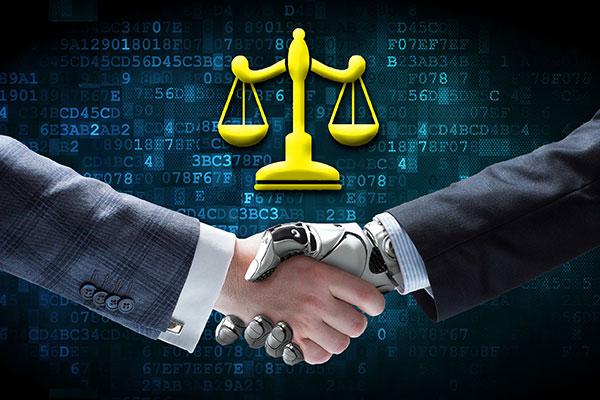Family law, a field that governs some of the most intimate and critical aspects of human relationships, is evolving rapidly. As technology continues to transform legal systems and societal expectations shift, the balance between innovative tools and the human connection becomes increasingly significant. This delicate interplay will shape the future of legal practices, particularly in matters involving family dynamics.
From digital documentation to AI-assisted mediation, technology offers opportunities to enhance efficiency and accessibility. However, the emotional and personal nature of family-related disputes necessitates preserving the compassionate and human-centered aspects of legal practice.
The Integration of Technology in Family Law
Advancements in technology are revolutionizing the legal landscape, creating tools that enhance processes, streamline workflows, and improve outcomes. In the realm of family law, these changes are particularly impactful.
Virtual Consultations and Online Dispute Resolution (ODR)
With the rise of secure online platforms, virtual consultations have become a convenient option for clients. These platforms allow individuals to connect with attorneys, mediators, and legal professionals without needing in-person meetings. Online dispute resolution (ODR) further facilitates the resolution of conflicts through video conferencing and digital negotiations, enabling quicker and less stressful outcomes.
AI-Driven Legal Assistance
Artificial intelligence is making strides in analyzing case data, generating legal documents, and predicting case outcomes. AI tools can assist attorneys in drafting contracts, sorting through financial records, and managing case deadlines, allowing them to focus on more nuanced legal strategies.
E-Filing and Document Management Systems
Gone are the days of sifting through stacks of paper. E-filing systems and document management software allow attorneys to securely submit, retrieve, and organize case materials. These tools improve efficiency while reducing the risk of errors.
Child Custody and Support Apps
Innovative apps designed to assist with co-parenting and child support management are gaining popularity. These tools help parents track visitation schedules, manage expenses, and communicate effectively, often providing documentation admissible in court.
Challenges of Technological Integration
While the benefits of technology are undeniable, its integration into family law is not without challenges.
- Privacy Concerns: Handling sensitive personal data digitally raises questions about cybersecurity and data breaches. Legal professionals must ensure robust protection of client information.
- Accessibility Barriers: Not all clients have equal access to the internet or digital devices, potentially creating disparities in service delivery.
- Impersonal Interactions: Over-reliance on technology may risk diminishing the human connection crucial to understanding the emotional aspects of family disputes.
The Essential Role of Human Touch
While technology can streamline procedures, family law cases often involve deep emotional struggles that require empathy and understanding. Legal professionals play a pivotal role in providing a human connection that technology cannot replicate.
Empathy in Legal Practice
Listening to clients with compassion and understanding their emotional needs is vital. Attorneys who demonstrate empathy build trust and provide better support during challenging times.
Personalized Legal Strategies
Each family law case is unique, requiring tailored strategies that consider individual circumstances. Human expertise ensures that legal advice aligns with the specific needs of clients, something algorithms and AI tools cannot achieve entirely.
Mediation and Conflict Resolution
While ODR tools are helpful, face-to-face mediation allows for the expression of emotions and nuances that technology cannot fully capture. Mediators skilled in reading body language and facilitating dialogue can resolve disputes more effectively.
Support Beyond Legalities
Family law professionals often act as guides, helping clients navigate not just the legal system but also the emotional aftermath of significant life changes. Providing resources for counseling or financial planning is an essential part of this role.
Striking the Balance: Technology and Human Touch
The future of family law lies in finding the right equilibrium between technological innovation and human connection. Combining the two can lead to a more efficient, accessible, and empathetic legal process.
Enhancing Access to Justice
Technology can bridge gaps in legal services, particularly for underserved populations. Remote consultations, AI-powered tools, and user-friendly legal platforms make it easier for individuals to access assistance.
Efficiency Without Losing Empathy
Streamlining administrative tasks through technology allows legal professionals to devote more time to understanding and addressing client needs. This balance ensures that the emotional aspects of family disputes are not overshadowed by procedural efficiency.
Training for the Future
Legal professionals must stay updated on technological advancements while honing their interpersonal skills. Continued education in both areas ensures they remain effective in a rapidly changing landscape.
The Role of Ethics in the Technological Era
As technology becomes more integrated into family law, ethical considerations must remain at the forefront. Legal professionals have a duty to ensure that the use of digital tools does not compromise fairness, confidentiality, or the well-being of clients.
- Transparency: Clients should understand how technology is used in their cases and any associated risks.
- Data Security: Safeguarding sensitive information is paramount in family law cases.
- Bias in AI Tools: Monitoring and addressing potential biases in AI-driven systems is essential to ensure equitable outcomes.
The Road Ahead for Family Law
Looking ahead, family law will continue to adapt to societal and technological changes. Emerging trends, such as virtual reality-based mediation and blockchain for secure document handling, hint at exciting possibilities. However, these innovations must be balanced with the timeless need for empathy, fairness, and human understanding.
Collaborative Approaches
The future will likely see a rise in collaborative practices where attorneys, mediators, and mental health professionals work together to support families holistically.
Client-Centric Services
Family law services will increasingly focus on client empowerment, offering tools and resources that help individuals make informed decisions about their futures.
Specialized Legal Services for Nonprofits
Rubin Law Firm also offers tailored legal services for nonprofit organizations in Israel. Our attorneys assist with registration, compliance, governance, and other unique legal needs faced by nonprofits. We are passionate about supporting organizations that make a difference. For dedicated legal support, call 02-5637768 or visit rubin-law.net.
